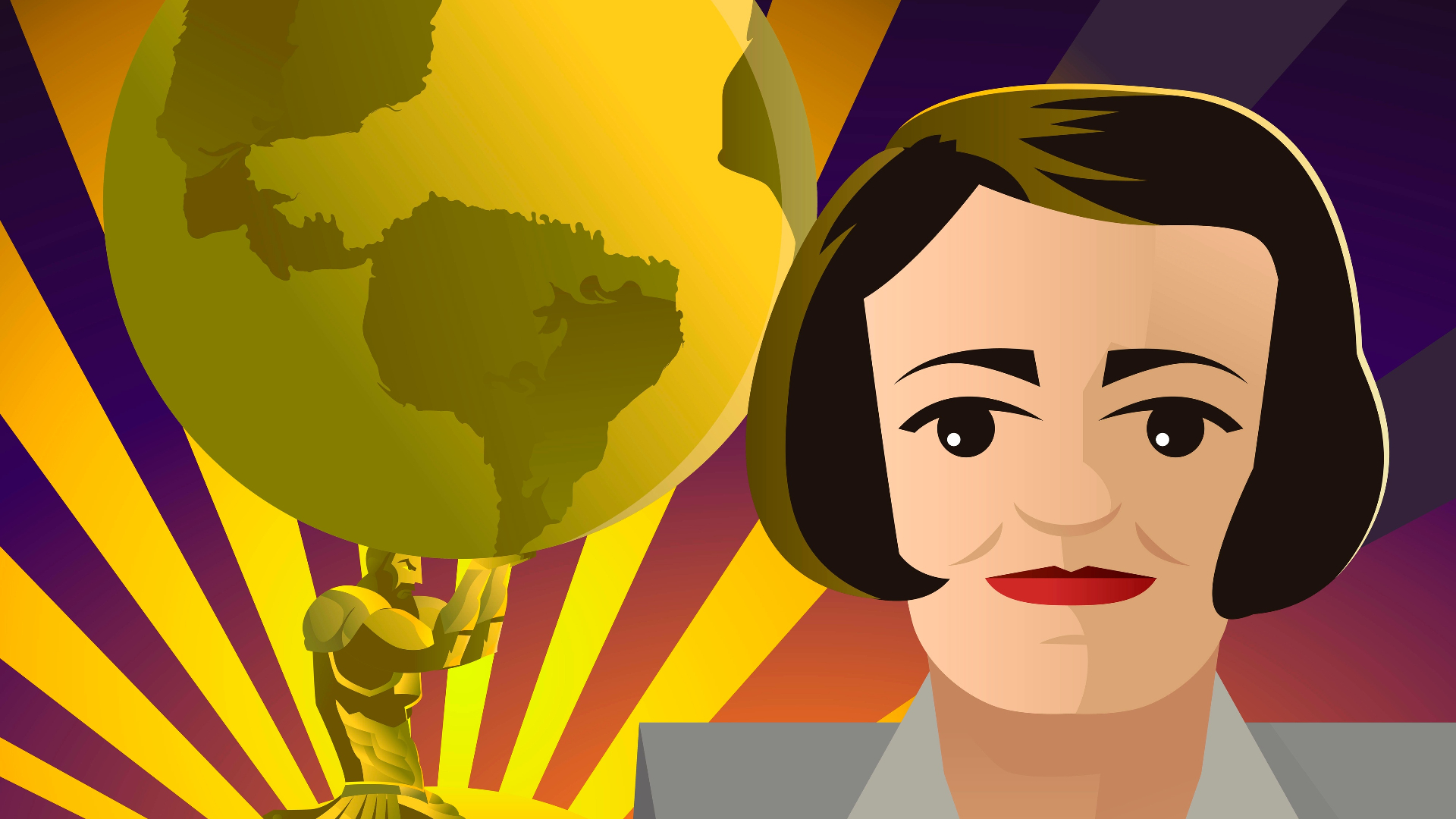In the world of philosophy and literature, few figures have left as profound an impact as Ayn Rand. Her philosophy of Objectivism, rooted in the principles of reason, individualism, and rational self-interest, has ignited intense debates, inspired countless followers, and challenged conventional wisdom for decades. Whether you’re an avid philosopher or a curious reader, delving into Rand’s ideas is an intellectual journey worth embarking on.
To begin this enlightening voyage into the world of Objectivism, we’ve curated a selection of five essential books that provide a solid foundation for understanding Ayn Rand’s philosophy. These works, ranging from captivating novels to thought-provoking essays, encapsulate the essence of her ideas and the impact they’ve had on both literature and the realm of ideas.
So, whether you’re stepping into Rand’s world for the first time or revisiting these classics with fresh eyes, these books are your passport to exploring Objectivism and its profound implications for individual liberty, reason, and the pursuit of happiness.
1. The Fountainhead (1943)
This novel stands as a timeless testament to the enduring power of individualism, integrity, and the unwavering pursuit of one’s values. Ayn Rand introduces readers to the enigmatic figure of Howard Roark, an architect who becomes the embodiment of these compelling themes.
At its core, The Fountainhead is a narrative of uncompromising individualism. Roark, the novel’s protagonist, serves as a paragon of unwavering commitment to his own principles and creative vision. Through his journey, readers are invited to explore Rand’s philosophical ideas, which emphasize the supreme value of reason and personal integrity. Roark’s refusal to conform to societal norms and his unwavering dedication to his architectural ideals serve as a vivid illustration of Rand’s Objectivist philosophy.
The novel explores the clash between individualism and collectivism as Roark battles against the established architectural establishment, which champions mediocrity and conformity over innovation and originality. Rand’s narrative masterfully weaves together the complexities of the human spirit, the creative process, and the moral imperative to live authentically.
2. Atlas Shrugged (1957)
Considered Rand’s magnum opus, this monumental novel stands as a literary exploration of the pivotal roles reason, individualism, and capitalism play in shaping society. It serves as an unflinching examination of the consequences of government intervention and the encroachment of collectivism on individual freedom and achievement.
At its heart, Atlas Shrugged is a philosophical epic that immerses readers in the intricate interplay between the rational mind and the creative spirit. Rand weaves a tapestry of characters and plotlines, where entrepreneurs, inventors, and industrialists are confronted with a world teetering on the brink of economic and moral collapse.
The novel introduces us to Dagny Taggart, a fiercely independent railroad executive who embodies Rand’s ideals of individualism and competence. Through her journey, readers are introduced to the enigmatic figure of John Galt, the novel’s central character and a symbol of rationality, integrity, and resistance to a society in decline.
Rand’s narrative delves into the ethical and economic consequences of government interference in the marketplace. It explores how collectivist ideologies erode the spirit of innovation and diminish the rewards of individual effort, ultimately leading to a dystopian world where the most productive individuals mysteriously begin to disappear.
Atlas Shrugged is an indispensable cornerstone for those embarking on a philosophical exploration of Ayn Rand’s Objectivism.
For more context on the enduring impact of Atlas Shrugged, be sure to check out the following article: Atlas Shrugged: a masterpiece with a lasting impact.
3. Anthem (1938)
In this concise yet powerful work, Ayn Rand transports readers to a dystopian realm where the very concept of individuality has been systematically suppressed. It is a tale that succinctly encapsulates the value of independence and underscores the profound importance of thinking for oneself.
Set in a bleak, totalitarian future, Anthem introduces us to a world devoid of the “I” and the concept of personal identity. The story follows the life of Equality 7-2521, a young man who dares to challenge the rigid collectivist society in which he exists. In this world, the collective “we” reigns supreme, and any form of personal expression or independent thought is ruthlessly quashed.
As Equality 7-2521 embarks on a journey of intellectual and emotional discovery, readers are exposed to the visceral impact of the stifling conformity that envelops his society. Rand’s narrative powerfully illustrates the oppressive effects of collectivism, where creativity and ambition are stifled, and the very essence of human nature is denied.
Despite its brevity, Anthem sends out a strong and timeless message that the pursuit of one’s own values, thoughts, and dreams is not just a right but an essential aspect of what it means to be human.
4. Capitalism: The Unknown Ideal (1966)
This remarkable non-fiction work stands as a compelling collection of essays, primarily by Ayn Rand herself, but with additional essays by Nathaniel Branden, Alan Greenspan, and Robert Hessen. Within its pages, readers will find a comprehensive and explicit exploration of Rand’s philosophy, with a specific emphasis on the moral and economic principles that underpin Objectivism.
At its core, Capitalism: The Unknown Ideal serves as a bold and comprehensive defense of capitalism as not only the most effective system of socio-economic organization but, most importantly, the most moral. Rand passionately articulates the moral foundation of capitalism, rooted in individual rights, economic freedom, and rational self-interest.
This series of essays delves into the very essence of capitalism, demystifying its often misunderstood aspects. It champions the idea that capitalism is not merely an economic system but a profound moral framework that aligns with the fundamental nature of human beings as rational, self-interested individuals.
Capitalism: The Unknown Ideal examines a wide array of topics, including the nature of government intervention in the economy, the virtue of selfishness, the true meaning of laissez-faire capitalism, and the moral significance of individual rights.
What sets this collection apart is its unapologetic celebration of capitalism as the ultimate system that not only maximizes individual liberty but also fosters prosperity, innovation, and human flourishing. It is a resounding defense of a socio-economic structure that, in the eyes of Rand and her co-authors, remains largely misunderstood and underappreciated.
For those seeking a deeper understanding of Objectivism and a robust defense of capitalism’s moral and economic foundations, Capitalism: The Unknown Ideal offers an abundance of profound insights and rigorous intellectual exploration.
5. The Virtue of Selfishness (1964)
In this enlightening collection of essays, Ayn Rand delves deep into the ethical foundations of her philosophy. With clarity and conviction, she presents a compelling case for why rational self-interest is a moral virtue and contrasts it with the conventional moral code of altruism.
At the heart of this work lies a revolutionary perspective on ethics. Rand argues passionately that acting in one’s rational self-interest is not only consistent with moral principles but is, in fact, a fundamental moral virtue. She contends that individuals have a moral right to pursue their own happiness and well-being without guilt or self-sacrifice.
Through a series of illuminating essays, Rand challenges the prevailing notion that altruism, often associated with self-sacrifice and the subjugation of one’s interests for the sake of others, is the highest moral ideal. She boldly asserts that altruism is detrimental to both the individual and society at large.
Rand’s exploration of the virtue of selfishness is grounded in a rational, life-affirming perspective. She argues that individuals, as rational beings, should embrace their own happiness and self-fulfillment as a moral imperative. In doing so, she advocates for a code of ethics that prioritizes rational self-interest, individual rights, and personal flourishing.
This collection of essays tackles a wide range of ethical and philosophical topics, including the nature of self-esteem, the role of reason in moral decision-making, and the ethical framework necessary for a just and prosperous society. Throughout, Rand challenges conventional wisdom and encourages readers to question established moral norms.
For those seeking to explore the moral foundations of Ayn Rand’s philosophy and its implications for human conduct and society, The Virtue of Selfishness is a must-read.
These five books offer a well-rounded introduction to Ayn Rand’s philosophy, covering both her fiction and her non-fiction works. They explore her ideas on individualism, reason, ethics, and the role of government in society.
But while these selections are clear choices for gaining insight into Ayn Rand’s philosophy, they are by no means the only books worth reading on the subject.
For more reading material on Ayn Rand, Objectivism, and capitalism, be sure to click on the button below to get your free copy of the e-book “The Morality of Capitalism,” where you can find a strong moral defense of capitalism through a collection of articles written by experts, including Nobel Prize winner Vernon Smith.
Are you a student interested in getting involved in pro-liberty activism? By applying to join Students For Liberty’s Local Coordinator Program, you can be supported in promoting the ideas of liberty while also developing your skills and meeting many like-minded students from across the world. Click on the button below to find out more and get involved!
This piece solely expresses the opinion of the author and not necessarily the organization as a whole. Students For Liberty is committed to facilitating a broad dialogue for liberty, representing a variety of opinions.



